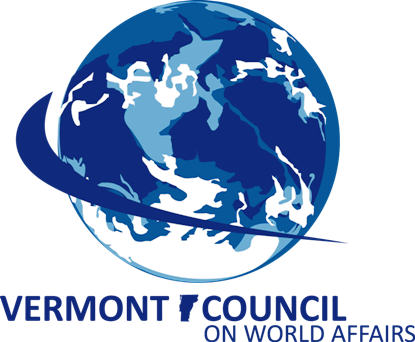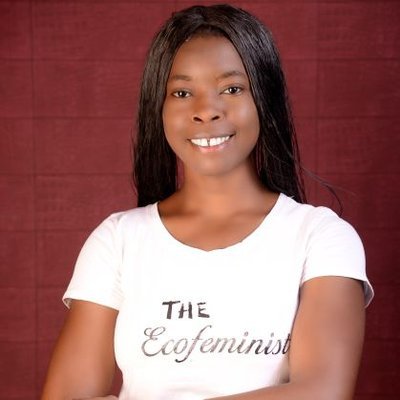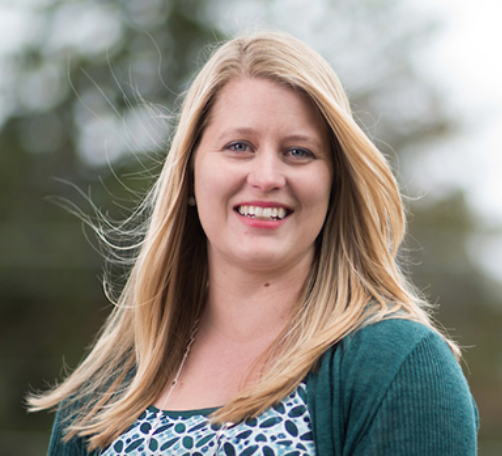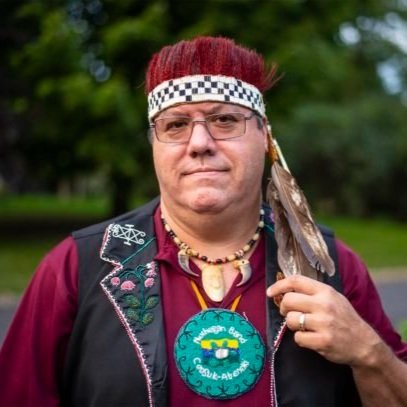About the Day
Climate Change affects minorities and indigenous people in many ways. Indigenous peoples account for most of the world’s cultural diversity and have been at the forefront of environmental conservation from the beginning. Climate change, deforestation, pollution, development, loss of biodiversity, and technological advances are serious threats to many varying communities due to individuals’ dependence on the environment and the local resources of the lands and territories.
Join us as we discuss the growing impacts of development on various communities and groups around the world and who is at the forefront of sustainable strategies and the fight to strengthen resilience to climate change.
Agenda
Building an Equitable Renewable Energy Movement
9:00am | Virtual
Neha Misra
Global Ambassador, Remote Energy
Neha Misra I नेहा मिश्रा is an award-winning climate justice advocate, contemporary visual eco-folk artist, and poet. A first-generation immigrant from India, Neha’s intersectional climate leadership spans global, national, and local impact. Neha serves as the Inaugural Global Ambassador of non-profit Remote Energy whose solar workforce development programs are addressing acute gender and racial inequities in the solar energy movement in America and beyond. She is a 2022 Public Voices Fellow on the Climate Crisis, an initiative of the Op-Ed Project and Yale Program on Climate Change Communication to change who writes history. In 2020, amidst multiple ecological, racial, pandemic reckonings, Neha launched her Earth stewardship-centered multi-disciplinary studio which uses the power of art and poetry to foster planetary health. Prior to this, Neha Co-Founded pioneer social enterprise Solar Sister to grow local women-led sustainable energy access in communities across sub-Saharan Africa. In 2017, Neha was selected as a Presidential Leadership Scholar. Neha has been featured in National Geographic Magazine, Next Billion, Forbes, Ms. Magazine, Mothers of Invention, Business Fights Poverty Top Climate Podcasts, The John F. Kennedy Center for Performing Arts, Miami Art Week Regenaissance, The Washington Post, and Voice of America.
About the Moderator
Araí Monteforte
Energy Sector Director, Tetra Tech
Araí Monteforte joined Tetra Tech in 2014 and brings a background in engineering to the energy and international development markets. As the Chief of Party for the U.S. Agency for International Development’s (USAID) Scaling Up Renewable Energy (SURE) program, she works with USAID partner countries to reinvent national electric grids and develop the policies and institutional, regulatory, and technical solutions needed to provide sustainable, reliable electricity for future generations. Araí provides technical assistance for strategic energy planning, grid integration, and competitive procurement to help policymakers, utilities, and regulators modernize energy sectors and create policies that enable renewable energy markets to flourish.
The Gender-Climate-Conflict Nexus
11:00am | Virtual
Adenike Oladosu
Founder, ILeadClimate
Adenike Oladosu , is an eco-feminist and a climate justice activist. She's the founder of "ILeadClimate" , an award winner and an advocate for the restoration of Lake Chad. Lake Chad is a freshwater body that once supported the livelihoods of around 30 million people across four countries. Climate change has led to it rapidly shrinking, resulting in what the UN calls one of the most unique, complex, and severe humanitarian crises in the world. Born in Nigeria, Adenike earned a first-class degree in Agricultural Economics and is an ambassador for Earth Uprising and African Youth Climate Hub, an initiative of the Mohammed VI Foundation for Environmental Protection. She is also head of the "ILeadClimate" movement for peace, security and equality in Africa, particularly in the Lake Chad region. As part of the "Fridays For Future" (FFF) movement in Nigeria, she shared in the 2019 Ambassador of Conscious award by Amnesty International to Greta Thunberg and the FFF movement in recognition of the youth fight for climate justice.
Lydia Wanjiku Kibandi
CEO, Lensational
Lydia Wanjiku Kibandi is the Chief Executive Officer at Lensational, a non-profit social enterprise that works to elevate the voices of women from marginalized communities through photography. She offers climate justice solutions from both a social entrepreneur and a creative’s perspective. As a young leader, Lydia demonstrates extensive experience in leadership, management, and communication gained within a number of roles in the private and international development sector, qualities that had her nominated for Business Daily Kenya, Top 40 under 40 women in Leadership 2019.
Mrinalini Rai
Director, Women4Biodiversity
A women’s rights and environmental rights advocate and Director of Women4Biodiversity, Mrinalini works on policy advocacy and research on the intersection of gender equality and women and girls’ rights, and environmental justice. She has been working for many years on environmental governance and human rights issues particularly focused on integrating indigenous peoples’ and local communities’ rights, including women’s rights into the decisions of the Convention on Biological Diversity (CBD). She is also the coordinator of the Women Caucus - UN Convention on Biological Diversity (CBD) which supports women's civil society active engagement through active participation, information sharing, and inputs into the policy space on biodiversity and environment-related processes at the CBD.
About the Moderator
Jody Prescott
Lecturer, University of Vermont
Jody Prescott works as a federal attorney in the areas of commercial litigation and environmental law. He has been teaching at UVM since 2012. Jody’s research and writing focuses on four major evolving international security topics: the operationalization of gender, climate change and armed conflict, the education and development of cyber leaders, and military ethics from a law of armed conflict perspective. He returned to Vermont after serving 25 years as an Army Judge Advocate.
Climate Change and Adaptation to Social-Ecological Change
2:00pm | Virtual
Eranga Galappaththi (Ph.D. in Geography, McGill University) is an Assistant Professor in the Department of Geography at Virginia Tech. Prior to Virginia Tech, he worked as a Research Scientist in the Arctic and Aquatic Research Division (Arctic Salmon group) of the Department of Fisheries and Oceans Canada. Also, Eranga was a Research Professional for the Institute of Integrative Biology and Systems at Laval University and led Indigenous research in Sri Lanka as part of the COVID Observatories project (University of Leeds). His recent research is central to climate change adaptation in remote Indigenous communities and their local food systems. The research has a strong empirical focus on community-based adaptation, particularly in small-scale fisheries and aquaculture. Eranga integrates concepts from social-ecological resilience, vulnerability, adaptation, and food security. Also, he brings a broader perspective to his research, using systematic literature reviews that contribute to global-level assessments. During his PhD, in which he partnered with Inuit (Canada) and Coastal-Vedda (Sri Lanka) communities, Eranga examined opportunities for climate change adaptation in Indigenous fisheries systems.
About the Moderator
Gillian Galford
Environmental Sciences and Natural Resources Associate Professor, University of Vermont
Dr. Gillian L. Galford is a Research Associate Professor in the Rubenstein School of Environment and Natural Resources, as well as a Fellow of the Gund Institute for Environment at the University of Vermont. As an ecosystems ecologist and earth system scientist, Gillian studies land-cover and land-use change in the tropics and its impacts, particularly on greenhouse gas emissions and the water cycle.
Indigenous Climate Justice: A Local and Global Perspective
6:30pm | Champlain College
Chief Don Stevens
Chief of the Nulhegan Band of the Coosuk - Abenaki Nation
Chief Stevens is a political activist, artisan, educator, environmentalist and informational technology expert. Chief Don Stevens is an award-winning leader, businessman, writer, and lecturer. He has been featured in magazines, books, TV shows, and documentaries. Don has served on many boards and commissions including the Vermont Commission on Native American Affairs, Attorney General Board of Racial Disparities, Lake Champlain Sea Grant Program Advisory Committee, and the Nature Conservancy Advisory Council to name a few. Chief Stevens helped lead the fight to obtain legal recognition, acquire land, and federal settlement agreements for the Abenaki People. A gifted storyteller, he speaks about issues of Native American Sovereignty, Spirituality, Racial Disparity, and Abenaki Identity.
Dilafruz Khonikboyeva
Climate Co-Chair, WCAPS
Environmental Justice Practitioner, Conflict and Communications Expert
Dilafruz Khonikboyeva is serving in the Biden-Harris Administration as a Senior Advisor, Policy, Planning and Learning at USAID. She is a conflict and development practitioner who has experienced the complex social, economic, and political realities of fragile contexts through the lens of media, government, aid, and organizational development. Her career has spanned policy, communications, and conflict resolution focused on ethnic/identity conflict, humanitarian access, climate crises, and civil wars, including Syria, Iraq, Yemen, Ukraine, Afghanistan, and Tajikistan. She also serves as the Climate Co-Chair at WCAPS working to create a space for women of color to engage in climate-related discussions and initiatives.
Most recently, Dilafruz spent five years in leadership at the Aga Khan Foundation, working in some of the most remote, fragile contexts in Africa and Asia. She started as the Director, Policy, Public Affairs, and Strategic Communications and later became a Global Lead. Before that, she worked for eight years at USAID for the Bureau for Humanitarian Assistance, focused on complex humanitarian and natural disaster crises. Her last role was the Deputy Director, Center for International Disaster Information. She was selected by the presidential centers and libraries of George W. Bush, William J. Clinton, George H.W. Bush, and Lyndon B. Johnson as a 2019 Presidential Leadership Scholar. Ms. Khonikboyeva is a Co-Chair for the Climate Change Working Group for Women of Color Advancing Peace, Security and Conflict (WCAPS). She received her undergraduate and graduate degrees from the George Mason University’s Jimmy and Rosalynn Carter School for Peace and Conflict Resolution.
Dilafruz is originally from Khorog, Tajikistan and grew up outside Atlanta, Georgia. She is Indigenous Pamiri.
About the Moderator
Bill Schubart is a literary fiction writer who writes about Vermont in fiction, humor, and opinion pieces. He was a former chair of the Vermont Journalism Trust, the parent organization for VTDigger. He was born in New York City. Schubart attended Morrisville grade school, Exeter Academy, Kenyon College, and graduated from UVM with a degree in French. He has lived in Vermont since 1947.
Thank You to our Sponsors!
















